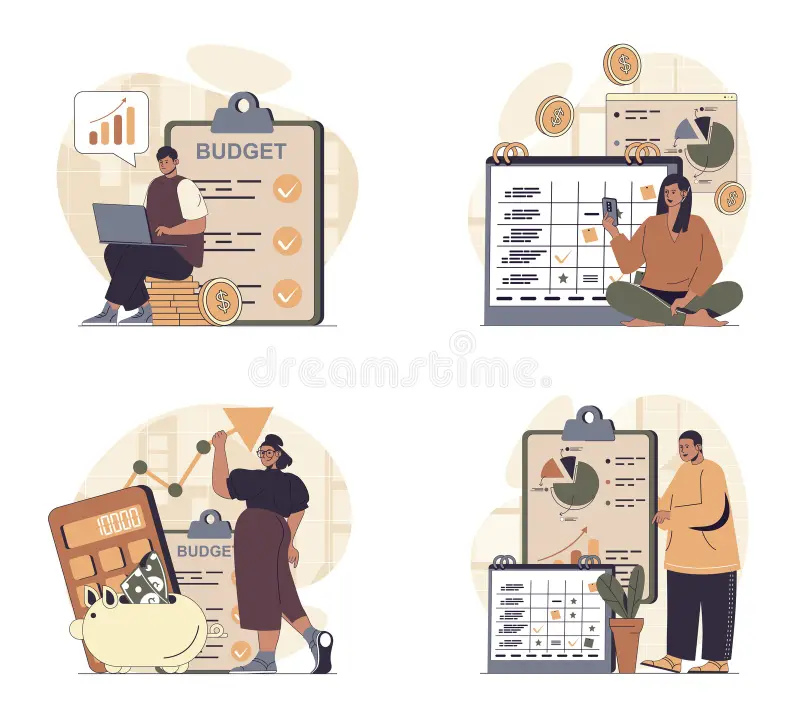Turning 18 feels like stepping into a new world — you can vote, get a job, open your own bank account, and start making your own financial decisions. But most young adults enter adulthood without ever being taught how money really works. Looking back, many people wish they had done things differently with their finances during those early years.
This article shares the most valuable money lessons people often learn too late — so that you don’t have to.
You Don’t Need to Spend to Impress
At 18, there’s a strong desire to fit in. It’s easy to think that having the newest phone, the best clothes, or the coolest car equals success. But here’s the truth: spending money to impress others is one of the fastest ways to fall behind financially.
What I Learned:
- Most people don’t notice or care what brand you’re wearing.
- True friends don’t care about your bank account.
- Living below your means is not a sign of weakness — it’s smart.
Credit Cards Are Tools, Not Free Money
Getting your first credit card can feel exciting. But without understanding how interest works, it’s easy to fall into debt.
What I Wish I Knew:
- Always pay the full balance — not just the minimum.
- Interest adds up fast. A $500 purchase can cost double if not paid off.
- A good credit score opens doors; a bad one locks them.
Use credit to build your financial future, not to fund your lifestyle.
Saving Early Really Does Matter
At 18, retirement seems a million years away. But saving even small amounts early gives you a massive advantage thanks to compound interest.
Example:
- Saving just $50/month from age 18 to 28 = ~$85,000 by age 60 (assuming 7% returns).
- Waiting until 28 and saving $100/month until 60 = ~$81,000.
Starting early beats saving more later. It’s not about the amount — it’s about time.
Budgeting Isn’t a Restriction — It’s Freedom
Many young adults think budgeting means giving up fun. In reality, it gives you the power to choose what matters most.
What Changed My Mind:
- Budgeting helped me stop stressing about money.
- I could still spend on fun — I just planned for it.
- I stopped asking, “Can I afford this?” because I already knew.
Budgeting gives your money purpose.
Emergency Funds Are Not Optional
Unexpected expenses are inevitable — a car repair, a medical bill, a lost job. Without savings, small emergencies become big problems.
My Mistake:
- I thought, “I’m young, nothing bad will happen.”
- When something did go wrong, I had to rely on credit or family.
Even $500 saved can make a huge difference. Start small, and build from there.
Side Hustles Beat Side Spending
In your teens and 20s, you have energy, time, and fewer obligations. It’s the perfect moment to explore side hustles.
My Advice:
- Use that time to learn skills, freelance, or start something online.
- Don’t waste your most flexible years just scrolling and spending.
Your future self will thank you.
Don’t Compare Your Journey
It’s easy to compare yourself to others on social media — their vacations, clothes, cars. But most of the time, what you see is only half the story.
Lessons Learned:
- Some people are going into debt to look successful.
- Comparison leads to spending — and unhappiness.
- Focus on your goals, not someone else’s timeline.
Stay in your lane — your journey is valid.
Learn Before You Sign
Loans, credit cards, phone contracts — all can come with fine print that traps you later.
What I Didn’t Know:
- Student loans accrue interest while you’re still in school.
- Car loans often come with hidden fees.
- That “buy now, pay later” deal wasn’t really interest-free.
Before you commit to anything with money, read it, research it, ask questions.
Talk About Money — Don’t Be Afraid
Money feels like a taboo subject, but staying silent leads to costly mistakes.
What Helped Me:
- Talking to friends about saving helped us motivate each other.
- Asking my parents questions helped me avoid their past mistakes.
- Seeking advice from mentors gave me confidence to make better choices.
The earlier you learn to talk about money, the stronger your financial future.
Final Thoughts: Knowledge Is Power
At 18, you don’t need to be perfect with money. You just need to be intentional. Small smart choices add up. Learning now will save you years of stress later.
If I could go back, I’d say: Start saving early. Learn how credit works. Budget your money. Don’t try to impress. And most of all — believe that you can control your financial future.
You have the chance right now to build habits that will serve you for the rest of your life.
in God we trust

